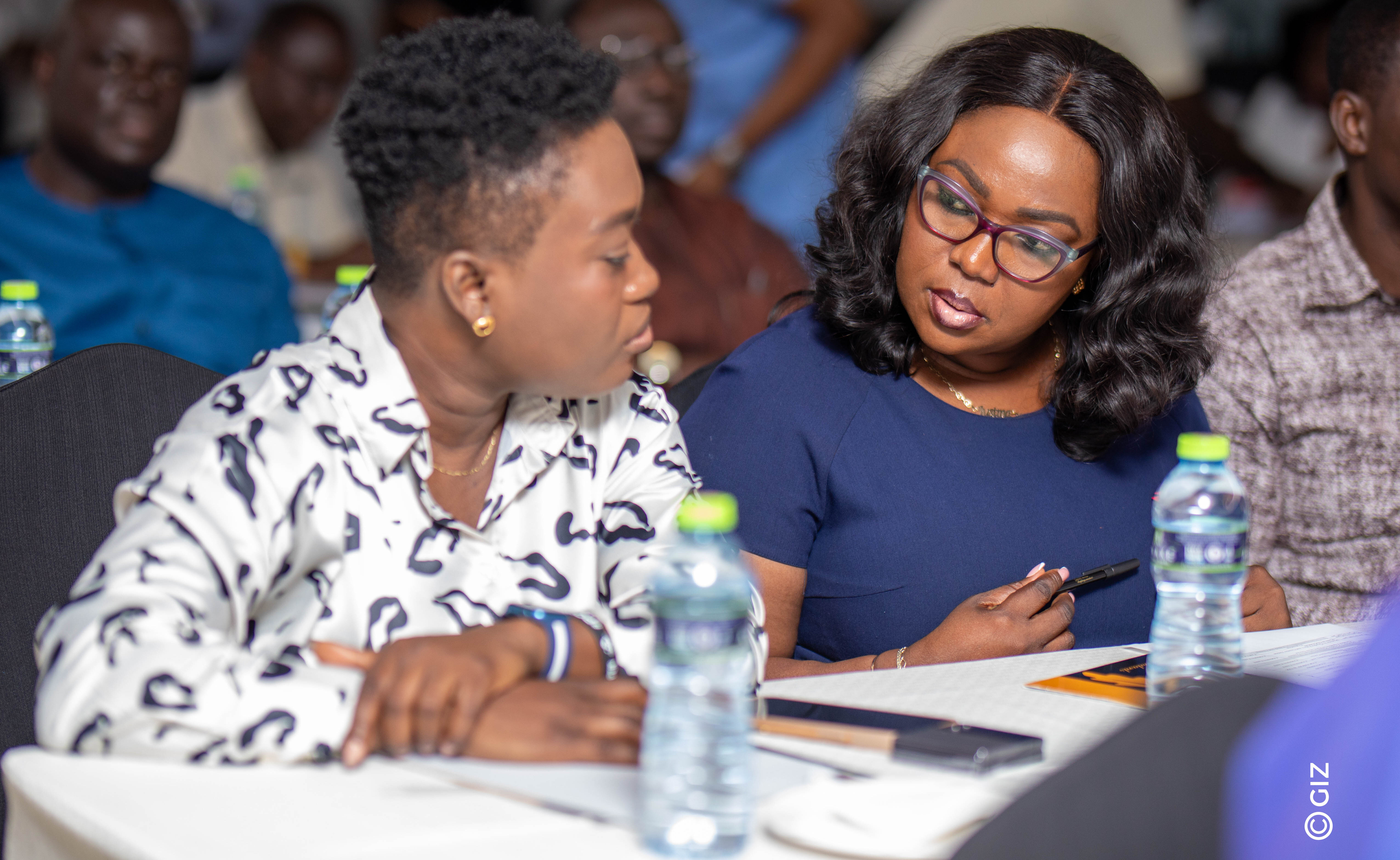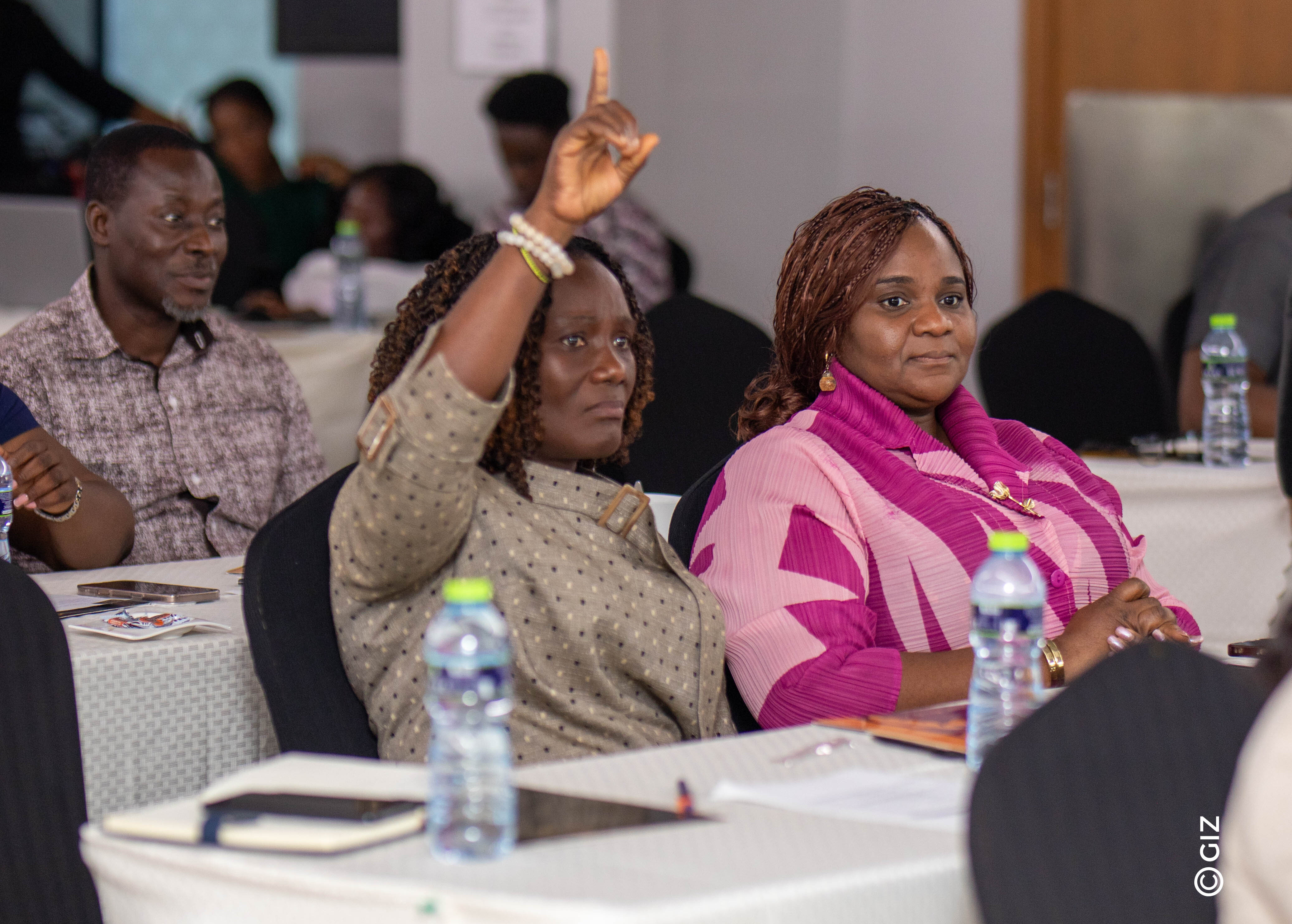Breaking Barriers: Building Gender Equality in the Cocoa Industry
The cocoa industry is a cornerstone of Ghana’s economy, supporting the livelihoods of millions and contributing significantly to national revenue. Yet, behind the rich aroma of cocoa lies a reality of persistent gender inequalities that continue to hinder progress, particularly for women in the sector. From limited access to land and credit to exclusion from decision-making roles, women who form a significant portion of the cocoa workforce often face systemic barriers that limit their full participation and potential
Recognizing that sustainable development cannot be achieved without gender equality, the GIZ - Sustainable Cocoa Programme (SCP), in partnership with the Gender Desk of the Ghana Cocoa Board (COCOBOD), is taking decisive steps to address these disparities. In view of this, an intensive three-day training on gender mainstreaming for directors and managers of COCOBOD has been successfully organized in Accra, Ghana. The training brought together over 190 directors and managers of COCOBOD, responsible for shaping the policies, programs, and culture of the organization. Significantly, 69% of attendees were men and 31% were women, reflecting a crucial step in engaging all genders in the journey toward equality.
Gender equality: A strategic necessity for the cocoa industry

The Affirmative Action (Gender Equity) Act, 2024 (Act 1121), mandates that at least 30% female representation in decision-making roles by 2026, with the goal of reaching full gender parity by 2034. On behalf of the Deputy Chief Executive in charge of Operations of COCOBOD, Simon Crown, Acting Deputy Director for Research and Development welcomed participants and stated that “Gender equality is not a compliance requirement but a strategic necessity for sustainable cocoa production and resilient communities. Our projects must deliberately reflect the diverse needs, roles, and influence of both women and men in cocoa communities.“
The training is a strategic step in fulfilling the Ghana Cocoa Sector Development Strategy II (CSDS II) and comes at a critical time as the cocoa sector prepares to comply with international regulations such as the EU Deforestation free Regulation (EUDR).
Recognizing that gender equality is not just a matter of fairness but of efficiency and sustainability, this training:
Equipped leaders with practical tools and knowledge to embed gender perspectives into policies and operations.
Encouraged the development of equal opportunities for men and women in all facets of cocoa production, management, and trade.
Strengthened the capacity of COCOBOD leadership to champion gender equity as a central pillar of sustainable cocoa development.
Samuel Noble Quaque, Interim Country Coordinator for GIZ–Sustainable Cocoa Program, emphasized that gender mainstreaming is a key indicator in the EU co-funded program. He highlighted that under GIZ traceability effort with COCOBOD, farmer enumeration data shows 36% of Ghana’s cocoa farmers are women, surpassing the global benchmark of 30% female inclusion. The goal is now to pass the threshold in all the other supply chain segment of the Ghanaian cocoa sector. He called on stakeholders across the cocoa value chain to advance gender equality, stressing that women’s contributions are vital for sustainable decision-making and sectoral growth. The lead consultant for the training, Rose Mensah- Kutin (PhD) from Abantu for Development indicated that “Gender Equity corrects historical disadvantages so that equality becomes achievable. If Ghana’s cocoa sector is to be transformative, inclusive, and sustainable, women must be at the table where power, decisions and budgets sit.”
Training supply chain actors to champion gender equality in the cocoa sector.

In the coming weeks, GIZ-SCP will be supporting the Gender desk of COCOBOD to create a pool of trainers, comprised of technical staff of COCOBOD, to further train and sensitize supply chain actors on the gender policy for the cocoa sector. The initiative ensures that gender equality becomes an integral part of institutional strategy, rather than an afterthought. Anchored in global development priorities and national commitments to gender equity, this effort represents a major milestone in the journey toward a cocoa sector that is not just economically productive, but also socially just and inclusive.
The Sustainable Cocoa Programme is funded by the European Union and the Federal Ministry for Economic Cooperation and Development (BMZ). It is implemented by Deutsche Gesellschaft für Internationale Zusammenarbeit GmbH (GIZ) in collaboration with Ghana Cocoa Board.
